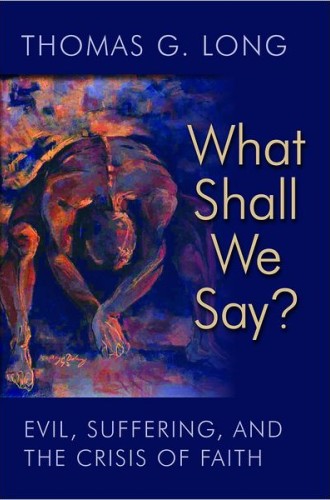What Shall We Say? by Thomas G. Long
Pat Robertson had a ready explanation for the Haiti earthquake—he said that it was an expression of divine wrath at a centuries-old pact with the devil. Robertson's explanation may offend many of us, but attempts at offering a theodicy have a long pedigree. Monotheists have long had a difficult time explaining the presence of evil and suffering in the world since they assume that God has no rival. If God exists and is by definition omnipotent, good and loving, then why do the innocent suffer? This dilemma may appear to be an impossible chess match, but some kind of answer is demanded of those called to preach, and even an incomplete and tentative answer must be deeply rooted theologically.
It is not that God needs defending, but that the people of God need help in holding together their faith professions in the midst of suffering. Those called to ministry in the church must walk with those who suffer, and a ministry merely of presence is insufficient. Thomas Long eloquently and forcefully demonstrates that the question preachers face is: "What shall we say?" This difficult question requires expert guidance, something that Long, a leading preacher and teacher of preachers, is well equipped to provide.
Long begins his book with the story of the earthquake that hit Lisbon on All Saints Day in 1755, devastating the Portuguese capital and killing thousands—and shaking the faith of many thousands more across Europe. Traditional theology was already under attack by partisans of the Enlightenment, and this disaster undermined the traditional theodicies offered by the likes of Gottfried Leibniz, who suggested that what God had created was the best of all possible worlds. Preachers sought to offer an explanation in terms of divine punishment, but how could God strike what was considered Europe's most religious city as it worshiped on All Saints Day? What did this event say about God?






